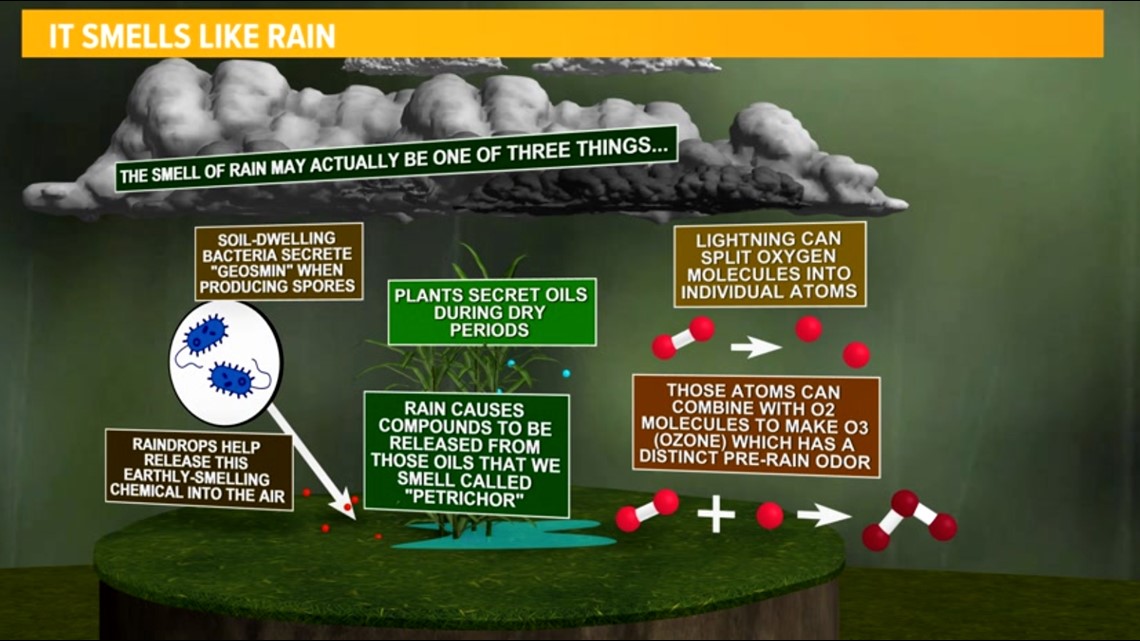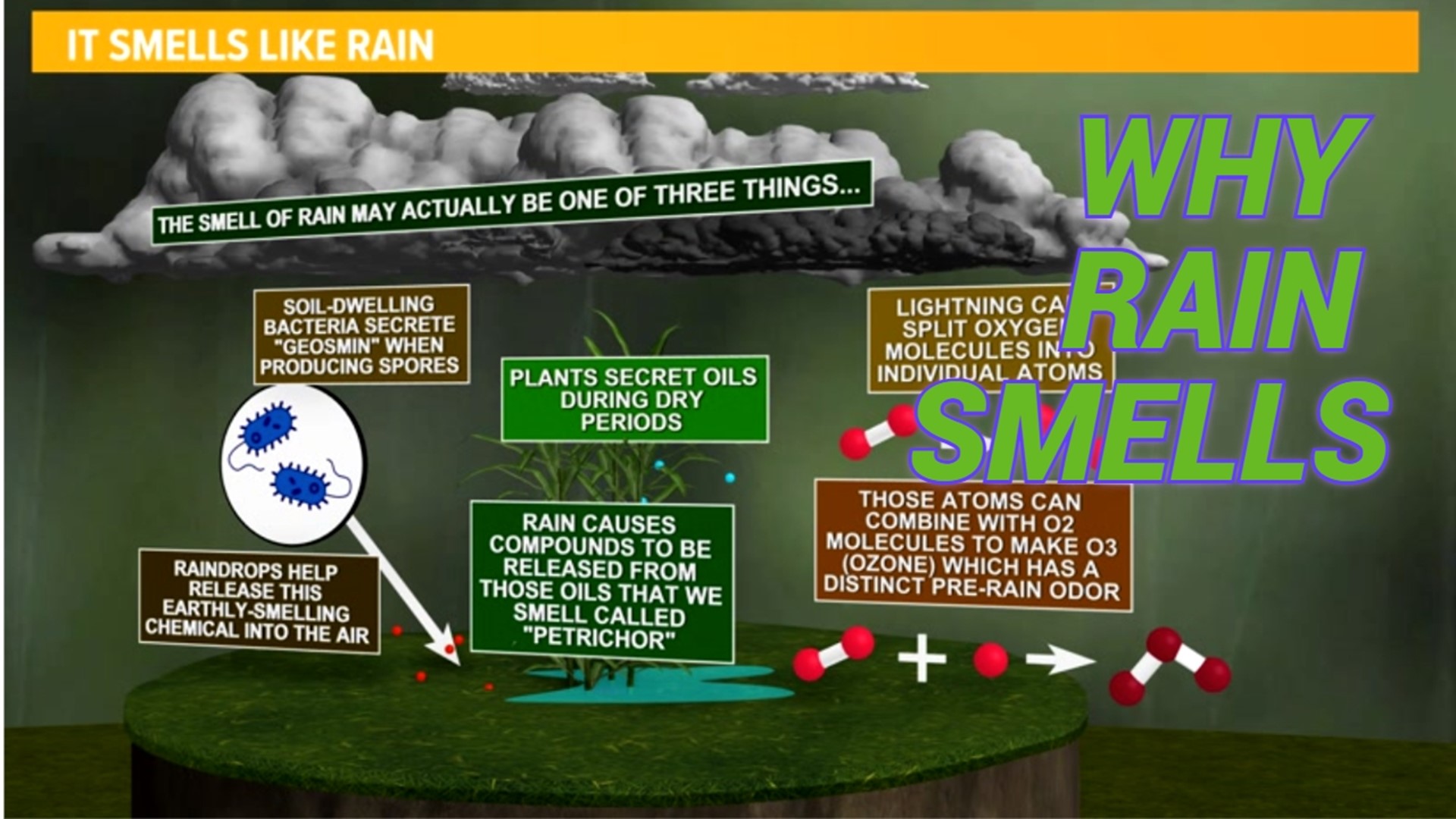JACKSONVILLE, Fla. — On a wet and soggy day, there's a distinct aroma in the air, a smell often associated with the arrival of rain. But, what exactly does rain smell like?
Common responses to that question are typically, "It smells like spring" or "Like falling leaves."
As diverse as these responses may be, they both hold a piece of truth. The cause of that rain smell can be attributed to various factors.
Soil Dwelling Bacteria: A significant contributor to the scent of rain is soil-dwelling bacteria. When rain falls, it aids these microorganisms in releasing an earthy-smelling chemical called geosmin into the air.
Plants and Petrichor: Plants also play a role in the orchestration of this aromatic dance. Before rain, soil absorbs various organic compounds including oils emitted by plants. When rain begins, these compounds are released into the air, contributing to the overall fragrance.
Lightning and Oxygen Atoms: Believe it or not, even lightning gets involved in the symphony of rain scent. Lightning can split oxygen atoms, resulting in a distinct smell just before the rain begins.
In essence, the distinctive petrichor scent is a result of complex interactions between the atmosphere, soil and a variety of natural elements. The specific combination of these factors may differ depending on the environment.
So, when you hear someone say: "It smells like rain's coming," or "I love the smell of rain," it's not all in your head. You're just smelling bacteria or lighting splitting atoms at the atomic level.
You've got to love science.



